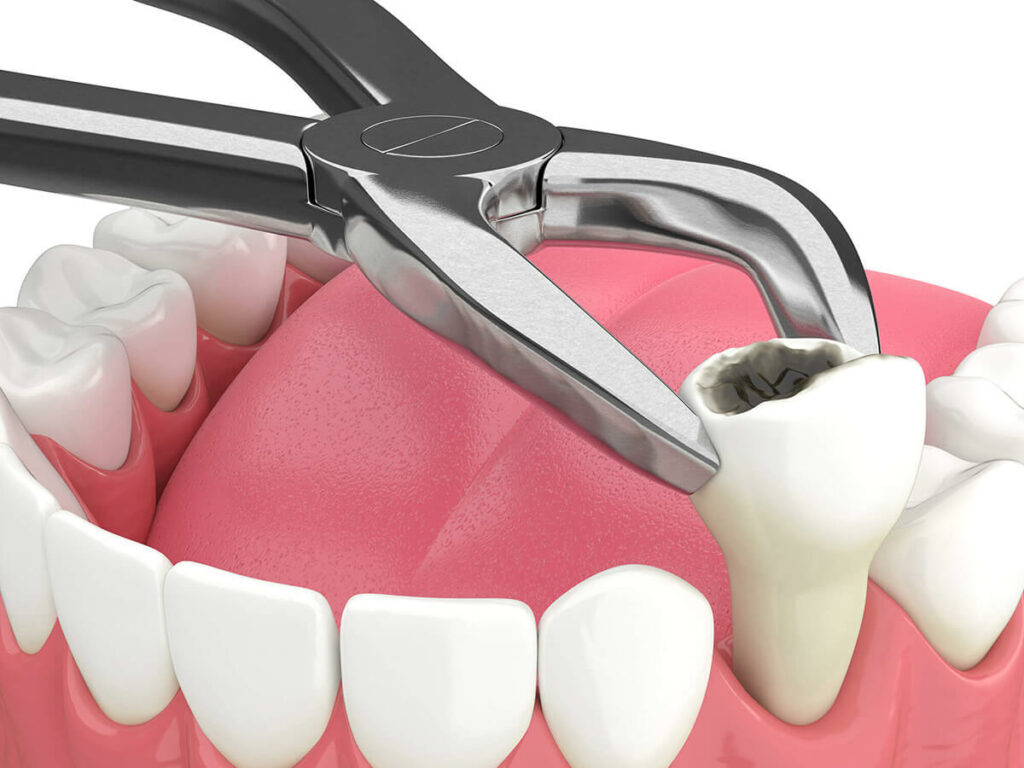Tooth Extractions
While it’s always our goal to care for and maintain your natural teeth, there are cases when removing a tooth is in your best interest. We work to make extractions as easy as possible so you can concentrate on a quick recovery.
Tooth Extractions in Winter Springs, FL
When it comes to your smile, we prefer to keep your natural teeth as healthy as possible whenever we can. But sometimes, other ways of fixing your teeth, like fillings or crowns, aren’t enough. If your tooth is badly broken and can’t be fixed, you may need to remove it. If you are experiencing any of these issues, we may recommend a tooth extraction:
- Severe tooth decay (cavities)
- A fractured tooth
- An impacted tooth
- Crowded teeth
- Severe gum disease
- Tooth luxation or other dental injuries
Extractions are typically a very fast process—we will use anesthesia to ensure you’re comfortable. The most critical part of the process is recovery. Controlling the bleeding and encouraging proper healing immediately after tooth extraction is crucial. This involves having you bite down on a gauze pad for 30 to 45 minutes to form a blood clot—you must be extremely careful not to disturb the blood clot for the next 24 hours. To manage swelling, we recommend an ice pack on the outer cheek, and once the swelling has gone down, a warm compress to the same area for comfort. Gentle rinses with warm salt water also help keep the extraction area clean.
We offer quick and painless tooth extractions at Collins Dental—call our office for an appointment today or see our aftercare instructions if you’ve had a tooth extracted.

-
How much does a tooth extraction cost?
We aim to provide quality dental care that’s affordable for our patients in Winter Springs, FL. Tooth extraction cost varies based on the location and number of teeth being extracted. Out of pocket cost for any procedure depends on your insurance coverage at the time of the procedure.
- Tooth Extraction Cost: $38 – $362
-
How to prevent dry socket after tooth extraction?
When you have a tooth extracted, you develop a blood clot shortly after the surgery to begin the healing process. If this blood clot becomes dislodged before your mouth fully recovers, it can cause pain. This is called a dry socket. Dry socket delays the healing process—it is important to try and avoid it.
Six tips for avoiding dry sockets:
- Do not use straws or anything that creates a suction movement of air and cheek muscles.
- Avoid smoking and chewing tobacco products, as fast inhalation can dislodge your blood clot, and the chemicals may prevent healing or cause an infection.
- Eat soft foods only, like applesauce, yogurt, and mashed potatoes, for the first one or two days.
- Inquire about your medicines to ensure they don’t interact with the healing process.
- Use proper oral hygiene to keep your mouth clean, and consider an antibacterial mouthwash.
- Follow your doctor’s instructions on proper oral care to improve recovery time.
-
What causes the need for tooth extraction?
Tooth extraction is the removal of a tooth from its socket in the bone. Teeth extraction usually occurs when a tooth has been broken or damaged by decay, and there is too much damage for the tooth to be repaired by a filling or crown.
However, there are other reasons for tooth extraction, including extra teeth that are blocking others, baby teeth that haven’t fallen out in time for the permanent teeth to come in, braces, wisdom teeth that are commonly removed, or medical reasons.
Questions About Tooth Extractions?
If you have any questions about tooth extractions or if you need a consultation, please schedule an appointment using the link below. We also provide numerous other restorative, preventative, and cosmetic dental services, see all of them by clicking See All Dental Services.
